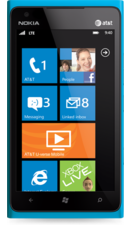Why Microsoft should reboot its smartphone platform one more time

Rumors that Microsoft's next incarnation of its smartphone platform might not support the current hardware lineup have sent a ripple of anger, confusion and incredulity through the Windows Phone community.
Is Microsoft getting ready to reboot its smartphone platform again? And if so, why?

Two months following the release of the Kin mobile platform, Microsoft abruptly pulled the plug on it, bringing the entire project -- hardware, software and infrastructure -- to an unceremonious end. Later, when Windows Phone 7 platform was announced, Microsoft made it crystal clear that Window Mobile 6.5 devices wouldn't receive this update because of hardware changes between the two platforms.
With the platform finally showing signs of growth, uncertainly and doubt over future upgrades will almost certainly put a damper on sales, and push some potential customers to the iPhone or one of the myriad of Android handsets on offer.
While I do feel for consumers who took a chance on the Windows Phone platform, and can appreciate why they feel frustrated, I believe at least one more reboot is required. And the primary reason for this is Microsoft's upcoming Windows RT operating system for ARM devices.
So far, Microsoft has been uncharacteristically silent about what the future holds for existing Windows Phone users. The only comment from the company regarding the next Windows Phone release -- codenamed 'Apollo' -- is that all existing apps will be supported by the new platform. While this is reassuring for developers who have put the groundwork into building an app ecosystem around the platform, it offers little comfort to consumers who have just bought a new Windows Phone handset and tied themselves to a carrier contract for a year or two.
There are several reasons why I feel that it's a prudent time for Microsoft to carry out another reboot of the mobile platform, even at the risk of alienating those who have put their trust in the Windows Phone 7--7.5 platforms. The first reason is that it doesn't make much sense for Microsoft to support two mobile platforms. Apple manages to cater for both its smartphone and tablet with a single, unified iOS platform, and there's no reason why Microsoft couldn't and shouldn't do the same.
If Microsoft's goal is to get Windows on as broad a range of screens as possible, including PCs, smartphones, tablets, TVs and so on, it makes sense to keep the number of platforms needed to support these screens to a minimum. Keeping the smartphone platform separate to the tablet platform doesn't make long-term sense.
There are other hardware-related reasons why a reboot makes sense. Microsoft has had no end of problems getting Windows Phone 7--7.5 updates onto the existing lineup of hardware. While some of these problems were down to the carriers, most of it was due to hardware incompatibilities. These issues resulted long delays in getting updates to customers, confusion, angry customers, not to mention weeks of PR headaches for Microsoft.
Despite drawing up stringent reference hardware guidelines that handset makers had to follow, there was enough variation among the designs to cause problems. This is a situation that Microsoft can't allow to continue, especially as the Windows Phone market expands in terms of users and devices.
Another hardware-related reason is the need to add new features to the platform, such as NFC support, removable micro SD cards, new screen resolutions and so on. Additionally, there's a need to support more powerful hardware, including multi-core processors. These updates are needed to take the Windows Phone platform to the next level.
The upcoming Windows Phone 'Apollo' release sounds like it is going to be a huge update. In fact, I believe that 'Apollo' is going to end up have far more in common with Windows RT than Microsoft is willing to let on at this stage. While I don't think that 'Apollo' will be Windows RT, it will pave the way for unification of the two platforms into a single product down the line.
While there's no doubt that Microsoft could retrofit the platform to work on current Windows Phone hardware, the user experience is likely to be less than ideal. It's better users are stuck with a platform designed for their hardware than end up using a retrofitted platform that has been significantly cut down to work on older handsets.
Personally, I hope that Microsoft throws Windows Phone 7--7.5 owners a bone of some description, perhaps in the form of an update to bring a few 'Apollo' features to the platform. But overall I think that the mobile platform needs another reboot in light of what 'Apollo' and Windows RT will bring to the table.
I also hope that Microsoft finally gets its mobile platform right, so there won't be a need for another reboot for some time to come.
Image credit: Nokia.
Related:
Top accessories for your iPhone and iPad
| Image Gallery: Top accessories for your iPhone and iPad | ||||||